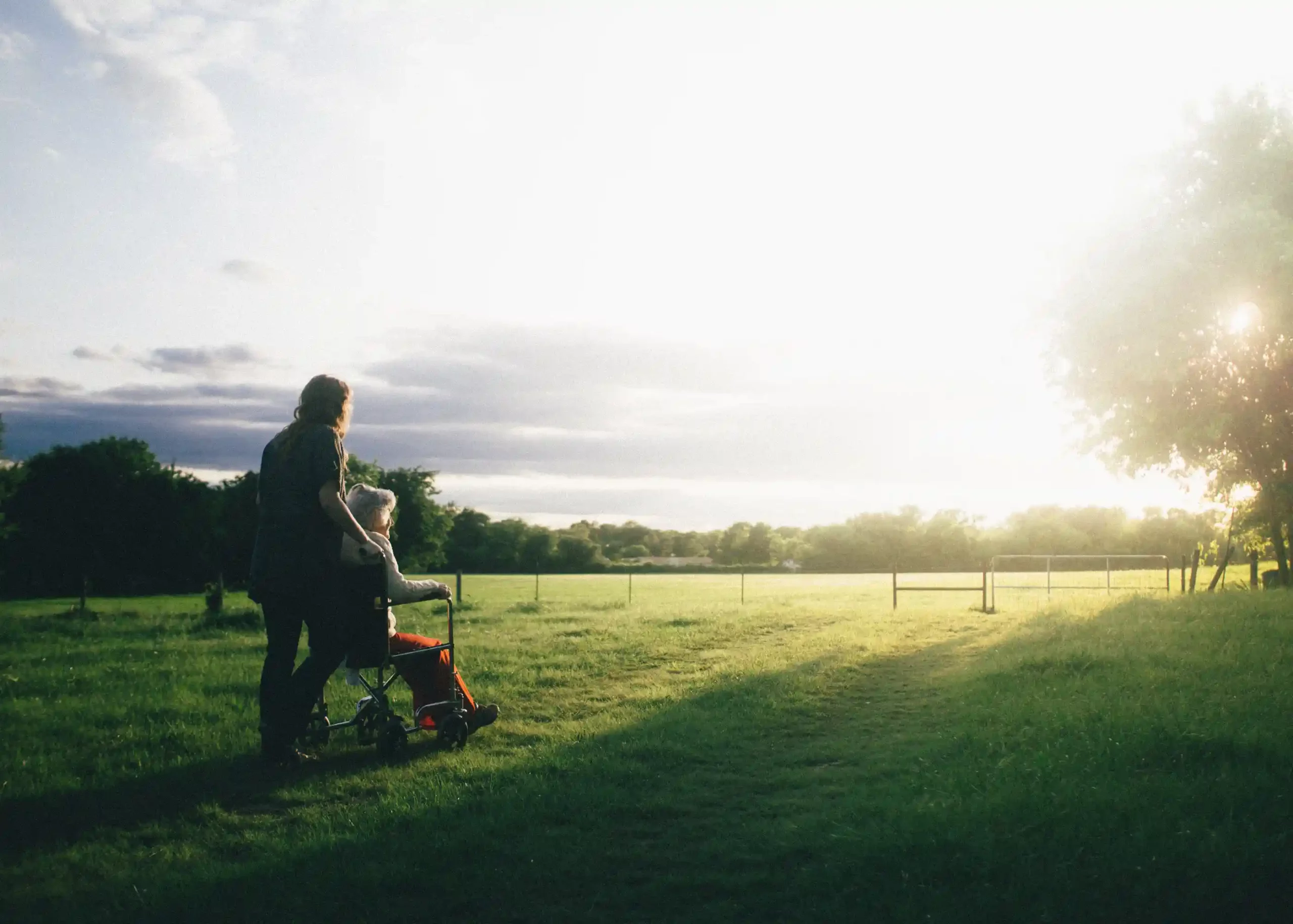Call now to speak
to an attorney

Falls occur often among the elderly. But did you know that elderly individuals fall at twice the rate if they live in a nursing home versus living independently?
The CDC estimates that 50% to 75% of patients in nursing homes will experience a fall of some kind each year. That’s why it’s essential to examine the circumstances of falls of elderly loved ones at nursing homes to determine whether it’s simply an accident or the result of abuse or neglect.
Reasons Falls Occur in Nursing Homes
As we age, loss of mobility, motor function, and vision contribute to a greater fall risk during normal activities. Many patients in nursing homes are there because they already require special care due to a variety of conditions that also increase the chance of falling.
Here are some of the most common reasons elderly patients may fall in a nursing home.
-
- Muscle Weakness
- History of Falls
- Cognitive Impairment
- Certain Medications or Changes in Medicine
- Transfer Issues
- Environmental Hazards
Health Risks of Falls
Dangerous complications can arise when elderly individuals fall, especially if it goes unreported or is downplayed by the nursing home staff. About 1 in 5 falls lead to serious injuries. In 2019 alone, falls resulted in 34,000 deaths in adults over 65 years old, making falls the leading cause of injury death in this age group.
Every fall should be taken seriously, as elderly individuals are at greater risk for serious and often life-threatening complications from even the smallest accidents such as:
- Head injuries, including traumatic brain injuries
- Stroke as the result of a brain injury
- Loss of mobility and independence
- Leg, hip, arm, or other bone fractures
- Surgery and surgical complications such as infections or blood clots
- Extensive, painful recuperation and physical therapy
- Chronic pain
- Overall increased deterioration of health
Falls in Nursing Homes: Warning Signs of Potential Abuse and Neglect
Most falls in nursing homes are preventable when proper precautions and safety measures are met. If you notice any of these mistakes in fall intervention, it could be a sign that your loved one’s fall was not an accident but rather the result of abuse or neglect.
- The facility does not have a completed risk assessment on file. This includes a history of past accidents and falls, medications, and general physical health.
- The staff is not attentive to patients who need assistance with walking.
- Residents who need assistance don’t have appropriate walking aids, shoes, or foot care.
- Environmental hazards are repeatedly present when you visit your loved one, including poor lighting, slippery floors, debris in walkways, broken equipment, and more.
- Your loved one has faulty bed rails or a bed that is too tall for them.
Signs a Facility May Be Covering Up a Fall
If your loved one has difficulty speaking or communicating, they may not be able to advocate for proper care and reporting if they fall. Watch for these signs that a fall has gone undetected or been mishandled due to neglect or abuse that your loved one can’t communicate to you on their own:
- Your loved one seems to be in pain or has a new injury and nursing home staff denies knowing when or how it happened.
- Behavioral changes in your loved one such as agitation, withdrawal, or fear.
- Injuries from falls are cleaned up before being reported and examined by a medical professional, removing critical evidence.
- Facility management fails to follow up with you on internal reports. Nursing homes should undergo a rigorous evaluation of their practices after a fall occurs.
What To Do if You Suspect a Fall is Caused by Abuse or Neglect
Your top priority should be to ensure your loved one receives immediate medical attention if they experience a fall at a nursing home. Once you have a better idea of the seriousness of their injuries and the care they will receive, there are a few more steps you can take to address your concerns about abuse or neglect.
- Bring your concerns to the family council. If your loved one is experiencing falls, there is a chance it may be happening to others.
- Document what you observed, either in writing for future recall of events or by taking photos of injuries and conditions if possible.
- Speak with the nursing home staff about the incident and file a report.
- Become familiar with the Nursing Home Residents Bill of Rights.
- Seek further action by filing a nursing home fall lawsuit with an experienced law firm.
Based in Arizona, Solomon & Relihan are experts in representing cases of nursing home abuse and neglect, including falls. Solomon & Relihan has represented personal injury victims since 1974 and can advise families on what the federal and state laws in this practice area cover, and how they can respond to their loved one’s case of abuse or neglect in a nursing home.
Contact Solomon & Relihan now for a free consultation to find out more and discuss the quality of care of a loved one in a nursing home.
Martin J. Solomon is a principal at Solomon & Relihan PC and has been licensed to practice law in Arizona since 1970. He practices exclusively in the area of personal injury litigation, with an emphasis on nursing home abuse and neglect. Martin is a graduate of the University of Arizona College of Law, a past president of the Arizona Trial Lawyers Association, and has served as a member of the Board of Directors for the Arizona Center for Disability Law and the Arizona Center for Law in the Public Interest. He is a member of the Nursing Home Litigation Group in the American Association for Justice (formerly the American Trial Lawyers Association), the National Citizens’ Coalition for Nursing Home Reform and the Maricopa Elder Abuse Prevent Prevention Alliance.

